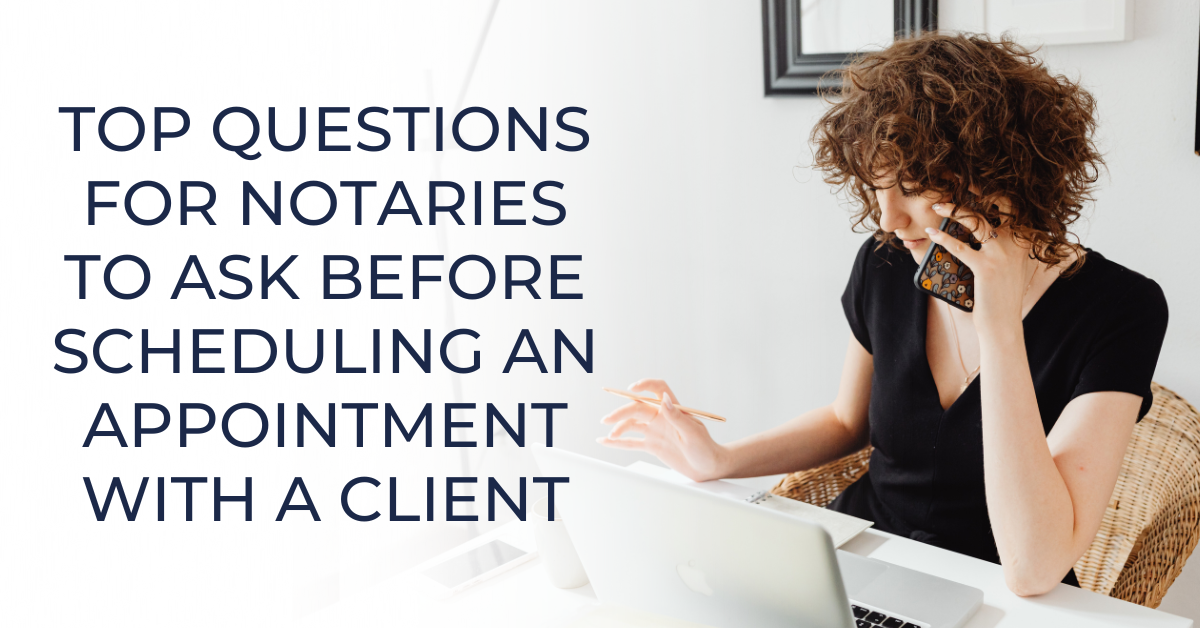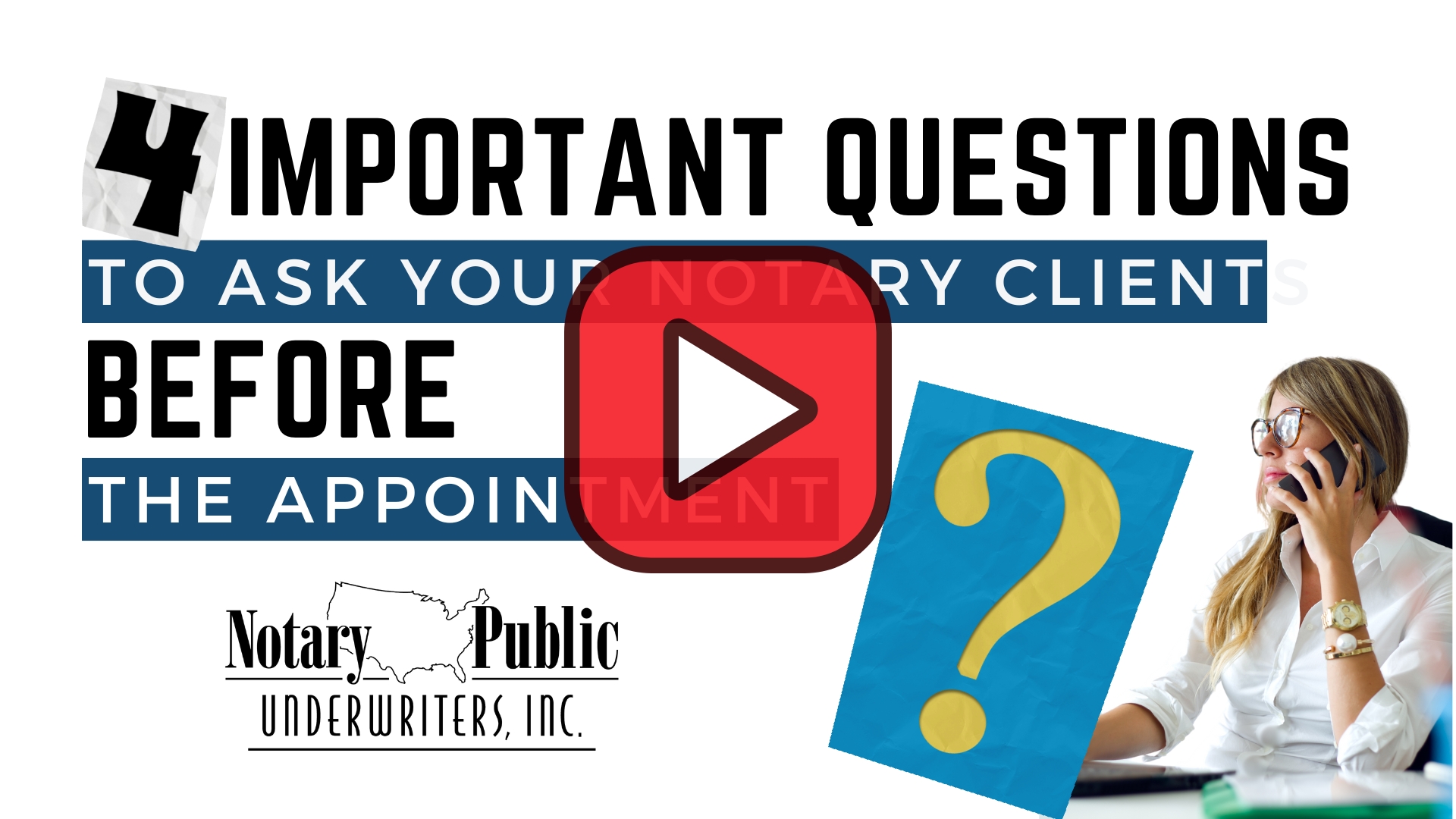Notary Public Underwriters Blog
Questions for Notaries to Ask Before Scheduling an Appointment With a Client
- Details
- Published: September 9, 2024

Whether supplementing a current full-time job, working part-time, or going all-in on creating their own business, notaries throughout the U.S. can earn steady income by performing notarial acts for the general public.
In this proven business model, notaries schedule appointments with their clients and arrange to meet them at an agreed-upon location to provide the desired services.
A key to every “mobile notary’s” success is thoughtful preparation. Each appointment the notary accepts must proceed smoothly, to minimize the chance of a costly do-over or the inability to complete a notarization because of an avoidable circumstance.
Asking just a few key questions helps a notary assess whether to accept an appointment, and provides the best chance for scheduled appointments to proceed without surprises.
“Will each person whose signature requires notarization be available and present for the appointment?”
Documents often have multiple named signers. By knowing upfront that one or more of the named signers cannot be present at the same time, the notary can attempt to schedule a separate appointment or appointments for those individuals. Thus, the notary would retain all the business generated by this single document.
The notary’s expected fee is another reason the notary should assess how many of a document’s multiple named signers will appear for a single appointment. Before every appointment, especially ones involving multiple named signers, the notary should state their minimum fee for the appointment based on the number of signatures to be notarized. (Notaries, remember to always provide customers with a receipt that line-items fees for notarial acts separately from fees for any other services or expenses.)
“Does each person whose signature will be notarized have any of the following identification documents?”
The notary would specify the ID documents that are “satisfactory evidence” of identification under the notary’s state laws. Ideally, each named document signer will have satisfactory evidence of identification. But when the notary knows in advance that satisfactory evidence of identification is an issue, the notary can (in states that allow it) instruct the affected signer to bring one or two “credible witnesses” who may vouch for the signer’s ID, as specified in the notary’s state laws.
“Is the named document signer a minor?”
Generally, minors are considered children under state law. Notary experts, including the American Society of Notaries, therefore recommend that notaries require a minor appearing for a notarial act to be accompanied by a parent or guardian.
“I speak and read (this, these) language(s). Is the document written in one of these languages? Does the person whose signature I would notarize speak one of these languages?”
Some mobile notaries have arrived for an appointment, only to realize that the document and notarial certificate are written in a language the notary cannot read. This makes it difficult for the notary to assess whether they have been given the complete document (necessary for an accurate description in the notary’s record book/journal entry), to observe which notarial act is intended to be performed, and if the notarial certificate language substantially complies with their state’s requirements. The notary must be able to observe these facts themselves. The notary might also realize that they cannot communicate with the named principal signer(s) in a shared language, and therefore cannot ask questions, give instructions, or administer the verbal ceremony for the required notarial act. Using a translator is unwise… the notary would not be able to tell if the translation of the notary’s comments and instructions is truly accurate.
Notaries, you can avoid notarization appointment hiccups that come to light only after you’ve arrived on the scene. Try implementing these recommendations if you don’t practice them already, and please share any preparation strategies that have helped your appointments run smoothly.
Related Article(s)
Can I Notarize When the Person Has No ID?
What to Do When the Notary Certificate Is Missing?
What Should I Do When There's No Room for My Notary Stamp?
Can I Notarize a Document That Is Already Signed?
Can a Notary Change a Document’s Date?
How to Notarize Signatures on Handwritten Documents
What to Do When Names Don’t Match on the ID and Document

